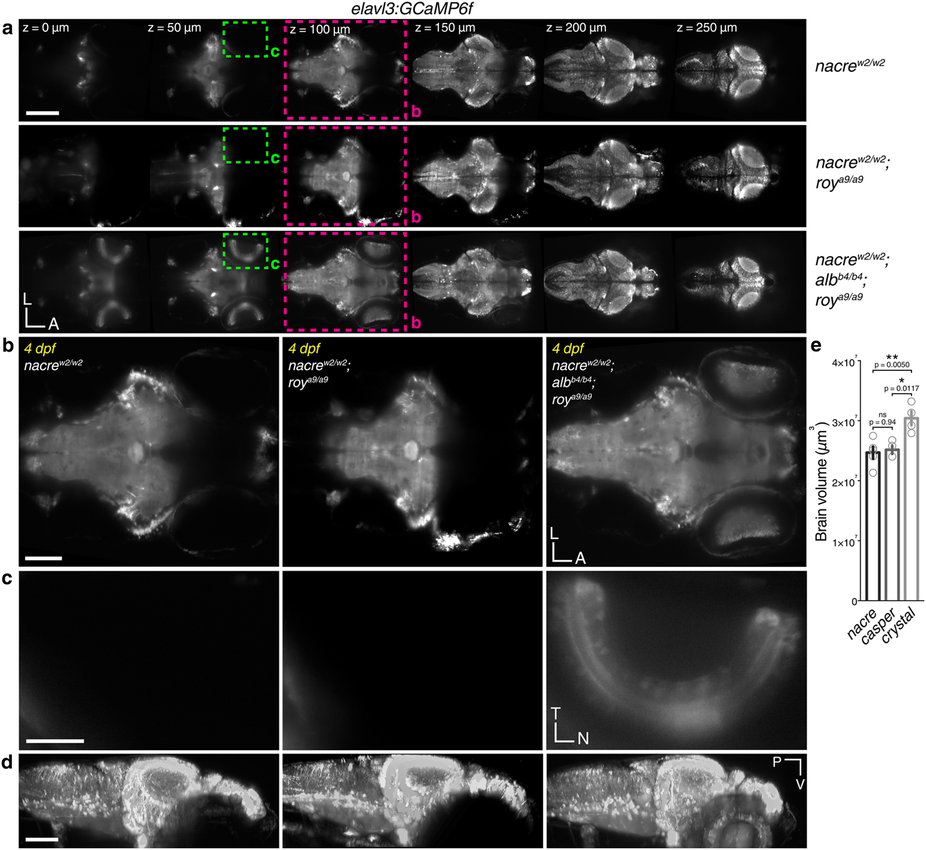Fig. 3
Improved optical accessibility of zebrafish larvae in whole-brain light-sheet imaging using crystal.
(a) Volumetric imaging of the larval zebrafish brain with light-sheet microscopy in 4 dpf nacre (top), casper (middle) and crystal (bottom) Tg(elavl3:GCaMP6f) larvae (n = 4-5 larvae in each group). Six different volume sections per larva out of 450 (total xyz volume of 798 × 623 × 283 µm3) are displayed. L, left; A, anterior. Scale bar is 200 µm. (b) Single volume sections of the brain (100 µm Z plane depth) in nacre (left), casper (middle) and crystal (right) larvae. Note the dark region between the eyes of nacre and casper larvae due to the excitation light being absorbed or reflected by pigments present on the surface of the eyes. L, left; A, anterior. Scale bar is 100 µm. (c) Insets showing the labelling of amacrine and ganglion cells in the left retina of the crystal larva (right) compared to nacre (left) and casper (middle) larvae, where no GCaMP6f fluorescence is detected in the eyes. T, temporal; N, nasal. Scale bar is 50 µm. (d) 3D reconstructions of the brain (lateral view) of nacre (left), casper (middle) and crystal (right) Tg(elavl3:GCaMP6f) larvae shown in (a). Note the improved optical accessibility (~18% of brain volume) allowed by crystal. P, posterior; V, ventral. Scale bar is 100 µm. (e) Average imaged brain volume in nacre, casper and crystal 4 dpf Tg(elavl3:GCaMP6f) larvae. Error bars are ± SEM. ns, non-significant; *p < 0.05; **p < 0.01; one-way ANOVA with post-hoc Tukey’s HSD test.

